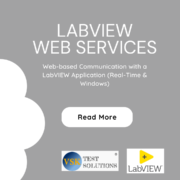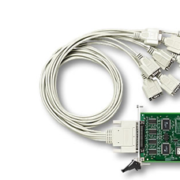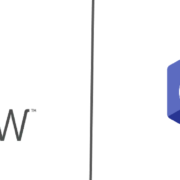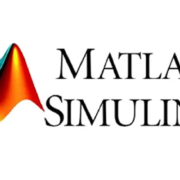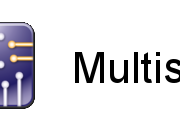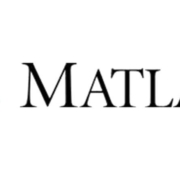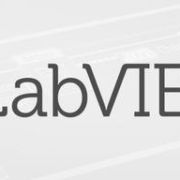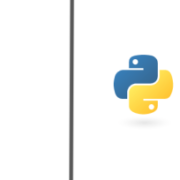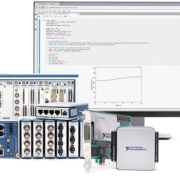Technical Blog
Instrument Control using C# with VISA
/0 Comments/in Technical Blog /by VSKTestSolutionsVISA is a driver software architecture developed to unify communication with GPIB, serial, Ethernet/LAN, IEEE 1394, and USB instruments and simplify your instrument control applications. With the VISA API developers can use GPIB, serial, Ethernet/LAN, IEEE 1394, and USB instruments.
VISA offers the following benefits:
- Interface independence – VISA provides a single API with the same methods to communicate with instruments, regardless of the interface type. For example, the VISA command to send an ASCII string to a message-based instrument is the same for GPIB, serial, Ethernet/LAN, IEEE 1394, and USB interfaces.
- An object-oriented architecture that can easily adapt to new instrumentation interfaces developed in the future.
- Full-featured instrumentation programming functionality implemented in a very compact command set.
What is the VISA .Net API?
The VISA .Net API is an object-oriented interface made up of a set of .Net classes to communicate with instruments with VISA. You can use Net compliant languages such as C# and Visual Basic .Net.

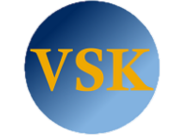
For further details please speak to our technical expert at VSK Test Solutions:
Email: sales@vskconsultants.com | Tel: +44(0)1296695548
LabVIEW vs C
/0 Comments/in Technical Blog /by VSKTestSolutionsLabVIEW and C are both software that is used in programming and development. They each have their benefits which you will be able to find out below:
LabVIEW
- More suited for high-level tests
- Able to build on top of tested, supported, and maintained libraries of lower-level code
- Eliminates the need to piece together components because hardware drivers return data and UI widgets display technical data in the same format as the analysis libraries consume
C
- Suited for lower level implementations of computationally intensive tasks
- Better for applications with tight resources that must be closely managed
- Great for pure computation because C executes instructions sequentially; as fast as the CPU can handle them


For further details please speak to our technical expert at VSK Test Solutions:
Email: sales@vskconsultants.com | Tel: +44(0)1296695548
Instrument control using MATLAB
/0 Comments/in Technical Blog /by VSKTestSolutionsInstrument Control Toolbox for MATLAB and Simulink by MathWorks lets you acquire data from test equipment like oscilloscopes and signal analyzers.
What does the Instrument Control Toolbox for MATLAB and Simulink do?
Instrument Control Toolbox for MATLAB and Simulink by MathWorks is a standalone application software add-on for MATLAB. It includes functions and apps to access data directly from test equipment. It supports industry-standard IVI and VXIplugandplay drivers, and it lets you communicate with instruments over GPIB, USB and TCP/IP. MATLAB together with Instrument Control Toolbox are ideal for applications that require preprocessing and analysis of RF and other signals.


For further details please speak to our technical expert at VSK Test Solutions:
Email: sales@vskconsultants.com | Tel: +44(0)1296695548
How does Simulink help with simulation?
/0 Comments/in Introduction, Technical Blog /by VSKTestSolutionsSimulink by MathWorks is a block diagram environment for multidomain simulation and Model-Based Design.
What can Simulink do?
Simulink by MathWorks is a standalone application software that works with MATLAB. Simulink provides a block diagram environment for Model-Based Design. It supports simulation, automatic code generation, and continuous testing of embedded systems.


For further details please speak to our technical expert at VSK Test Solutions:
Email: sales@vskconsultants.com | Tel: +44(0)1296695548
Simulation with Multisim
/0 Comments/in Introduction, Technical Blog /by VSKTestSolutionsMultisim is industry standard SPICE simulation and circuit design software for analog, digital, and power electronics in education and research.
How does Multisim work?
Multisim integrates industry standard SPICE simulation with an interactive schematic environment to instantly visualize and analyze electronic circuit behavior. Multisim has an intuitive interface that helps educators reinforce circuit theory and improve retention of theory throughout engineering curriculum. Researchers and designers use Multisim to reduce PCB prototype iterations and save development costs by adding powerful circuit simulation and analyses to the design flow.


For further details please speak to our technical expert at VSK Test Solutions:
Email: sales@vskconsultants.com | Tel: +44(0)1296695548
What is MATLAB?
/0 Comments/in Introduction, Technical Blog /by VSKTestSolutionsWhat can MATLAB do?
MATLAB is a standalone application used by millions of engineers and scientists to analyze data, develop algorithms, visualize results, and create models. MATLAB is ideal for simulating devices under test, generating impairments on RF and radar signals, creating test waveforms, analyzing test results, and designing algorithms. MATLAB and domain-specific toolboxes provide functions and apps that span everything from signal and image processing, control systems, communications and mixed-signal to machine learning, robotics and more.


For further details please speak to our technical expert at VSK Test Solutions:
Email: sales@vskconsultants.com | Tel: +44(0)1296695548
The new features in LabVIEW 2023
/0 Comments/in LabVIEW, Technical Blog /by VSKTestSolutionsGive your productivity an upgrade with LabVIEW 2023 Q1, packed with exciting new features and capabilities like these:
LabVIEW Introduces a Tool to Identify and Install NI Drivers for a Project
LabVIEW 2023 Q1 includes a utility to assist you in identifying and installing NI drivers used by a LabVIEW project.
Select Project>Package Dependencies from the Project Explorer menu or click the Package Dependencies button in the Project Explorer toolbar to open the Manage NI Package Dependencies dialog. The dialog examines the project to discover which NI packages are used. You can click the Save List button to save a text file that lists the identified packages.
If one or more packages are not currently installed, the Install button will be enabled. You can click the Install button to launch NI Package Manager, and install the required packages.
Enable the Show VIs checkbox to understand the reason a package is listed as a dependency. This shows the VIs referenced by the project that the tool assumes are provided by the package.
Each time the dialog box opens, the tool attempts to update a component from ni.com to get the most-up-to-date directory information.
If the project uses an FPGA target, the dialog will identify LabVIEW FPGA Module as a dependency. However, the tool is currently unable to recommend a specific driver for the target. If the FPGA Module is installed, FPGA targets in the project will show their model numbers, and you can search for applicable drivers on ni.com.
Applications on Linux Support Custom Name and Icon
Starting in LabVIEW 2023 Q1, you can customize the application name and icon for built applications on Linux. Also, if you do not provide a custom icon, built applications will now use the system default application icon instead of the LabVIEW icon.
To customize the application name and icon, use the Properties dialog for the application’s build specification. LabVIEW will generate a .desktop file along with the executable. You will need to move the .desktop file to the appropriate location such as /usr/share/applications/ for your Linux distribution.
Terminals Height No Longer Changes With Font
- Unbundle/Bundle by Name
- Locals/Globals
- Invoke Node
- Property Node
- Non-icon View for SubVI Calls
- Express VIs
- Event Structure Event Data Node
- Register Event Callback
- Register for Events
- Call Library Function Node Name View
- In Place Element Structure Unbundle/Bundle Elements
- Get Waveform Components
This is a LabVIEW 2023 Q1 feature that has been inspired by the LabVIEW Idea Exchange. If the new terminal size introduces wire bends to your VI diagrams, you can use the VI Analyzer Wire Bends test to find them. You will need to remove the wire bends manually.
Python Support
LabVIEW 2023 Q1 adds support for Python 3.10. In addition, LabVIEW 2023 Q1 supports Anaconda and venv virtual environments with the new Open Virtual Environment Session function.
Support for macOS 13
LabVIEW 2023 Q1 now supports macOS 13.


For further details please speak to our technical expert at VSK Test Solutions:
Email: sales@vskconsultants.com | Tel: +44(0)1296695548
LabVIEW vs Python
/0 Comments/in LabVIEW, Technical Blog /by VSKTestSolutionsLabVIEW and Python are both software that is used in programming and development. They each have their benefits which you will be able to find out below:
LabVIEW
- Hardware is easy to integrate
- Offers both Real Time and FPGA Modules
- Easy to use for inexperienced users to make seamless User Interface designs.
Python
- Large community making it easy to find answers to questions through forums
- Large selection of free packages and libraries
- Python code is portable as you can reuse it for other projects
- Free to download


For further details please speak to our technical expert at VSK Test Solutions:
Email: sales@vskconsultants.com | Tel: +44(0)1296695548
Instrument Control with Python
/0 Comments/in Introduction, Technical Blog /by VSKTestSolutionsEngineers program measurement and analysis routines in Python and validation and production engineers automate test in Python. Instruments can be automated and controlled through Modular Instrument Python Drivers.


For further details please speak to our technical expert at VSK Test Solutions:
Email: sales@vskconsultants.com | Tel: +44(0)1296695548
About Us
We Offer End to End Test Development Solutions Including Hardware, Software Development and System Integration Services.
Quick Links
Reach Us
Unit 20 Space Business
Centre, Smeaton
Close, Aylesbury
Buckinghamshire HP19 8FJ
Email:
sales@vskconsultants.com
Phone: +44(0)1296695548

